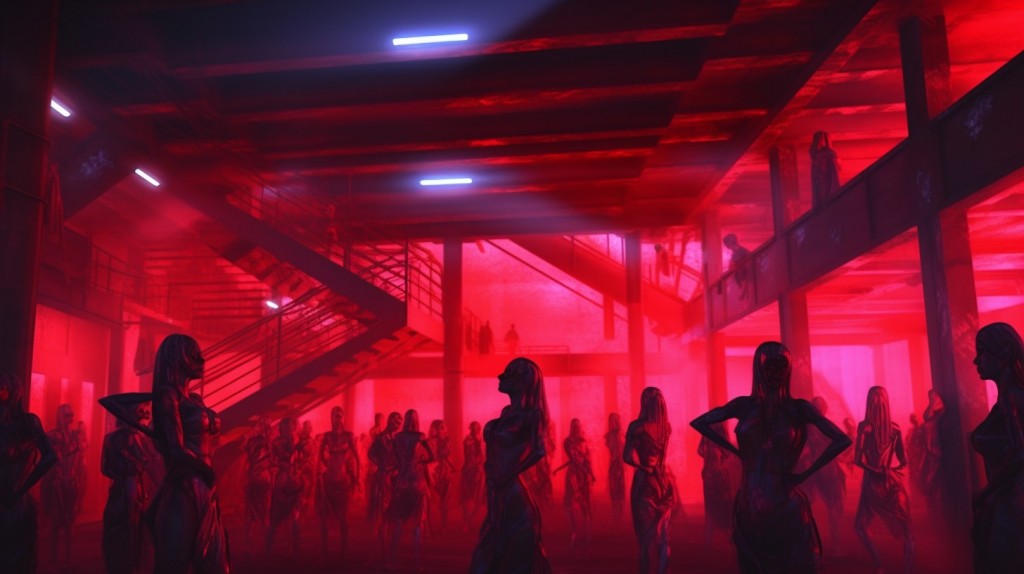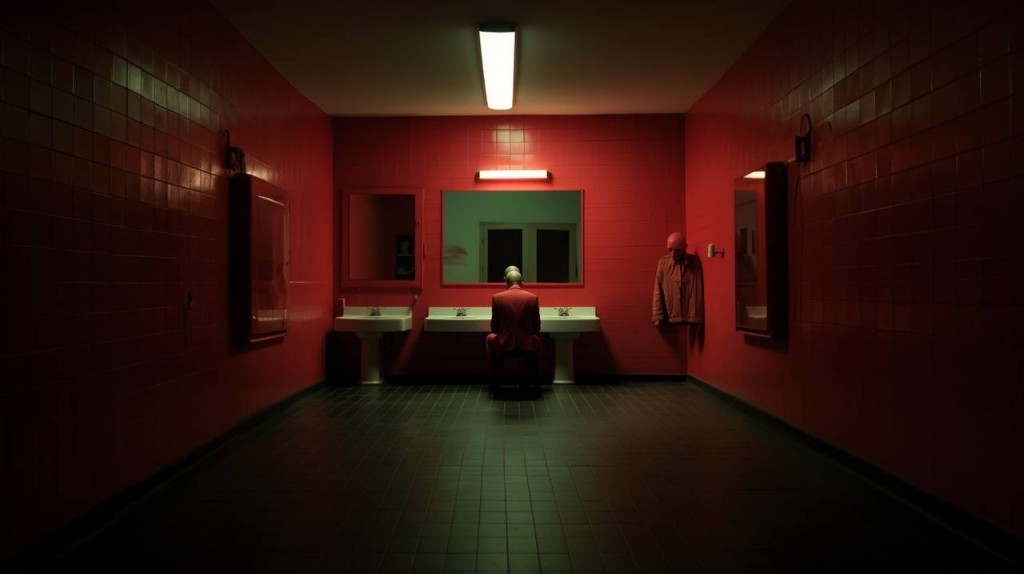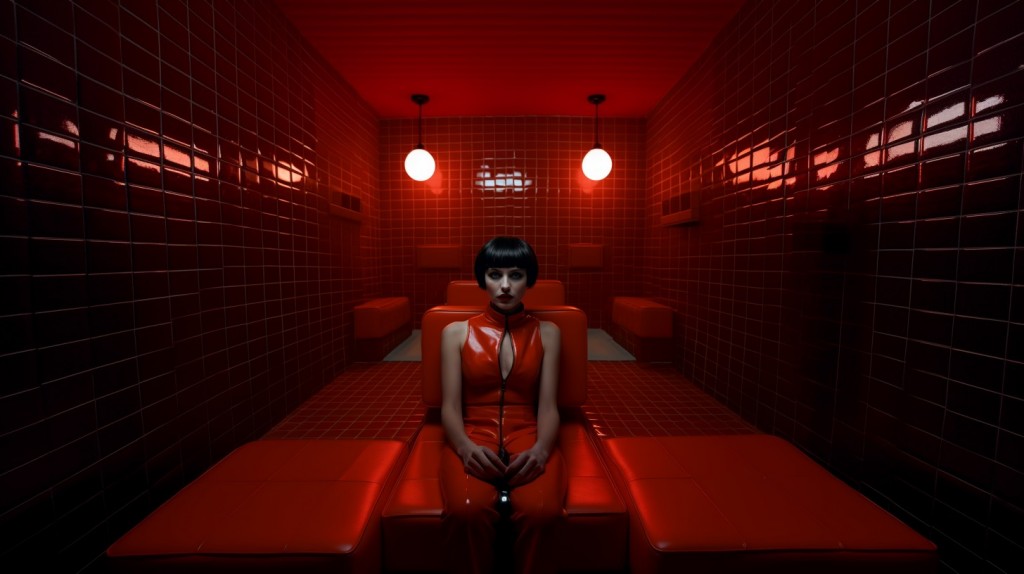Published by Alessandro Violante on September 21, 2023
Omon Breaker is a Ukrainian DJ and musician based in Berlin, representing the new wave of Ukrainian techno producers. This year, one of his tracks was featured on BITE Records‘ fifth-anniversary celebratory 3 LP titled Shedding Skin. Only a few months later, his new release, Compromat, is set to drop on September 29th, courtesy of BITE Records itself. Today, we have the pleasure of interviewing the artist about his upcoming release, the Ukrainian techno scene, and his passion for breakbeat music.
Q: Hi Omon Breaker! Before we delve into your new release with BITE Records, would you like to introduce your music to our readers?
OMON: Hello! Thank you very much for inviting me. It’s always a pleasure to talk a bit about what I’ve been doing all my life.
When discussing my music, I often look back at my history. I studied cinematography, so my mind constantly weaves various stories. When I started making music, these stories were fragmented and compressed. However, over time, my confidence grew, and at a certain point, I realized that it was more than just assembling instruments. I began crafting musical thrillers. In each of my works, I strive to create a protagonist, the circumstances they face, and describe their actions. I understand that many of my listeners may not fully grasp this concept, so when crafting a story, I aim to make it as authentic as possible so that each person can envision their thriller.
Q: Would you like to discuss your new release, “Compromat”? What does this word mean, and why did you choose it?
OMON: “Compromat” means “compromising material,” but in Ukrainian. This work has undoubtedly become the most significant in my career thus far. This isn’t solely due to the label and the extensive work BITE Records has put into it, but also because of two crucial criteria for me: musically and psychologically. I wrote this entire piece while in Berlin, having moved there during the full-scale invasion of Ukraine. Fate had it that my relocation coincided with a painful relationship breakup. To be honest, creating this work was extremely challenging for me because it represents my farewell to my previous life and my former self. Circumstances forced me to change my life, and “Compromat” depicts the emotions experienced during these changes. At times, I could put my emotions into words, but sometimes, I couldn’t even find them and had to convey my feelings through the music.
In two tracks, I use my vocals, and for the first time, I sing in Ukrainian. Both of these self-penned lyrics reflect two facets of sorrow and pain. In one, you hate the person who caused you pain, wanting to forget them forever, while in the other, you hate the world without that person. I believe that anyone who has loved at some point has experienced something similar.
Q: I read that the lyrics of “Compromat,” which include lines sung in Ukrainian and premiered by Hate Collective, are about a conversation between the devil and his victim. The victim had made a deal with the devil but failed to fulfill its terms. What inspired you to write this song and these lyrics?
OMON: Oh, yes, this is indeed my favorite work at the moment. Thank you for asking about it.
I grew up with poetry and art where authors often spoke from the perspective of the main character. I noticed that such narratives were uncommon in techno music. At that time, I felt bitterness and injustice and couldn’t understand why some people seemed to have it all while others were deprived of everything. It struck me as profoundly unjust, so I decided to create my own story where justice prevails, even if it has to be harsh. The main character became the Devil in the world I crafted. This is not the typical devil we envision. In my interpretation, he is a just being who can assist you in exchange for your soul. The only question is when he’ll claim your soul, and that remains unanswered. What’s clear is that payment will be required.
Q: Let’s discuss the second song on the release, “Unidentified,” where there’s an intriguing blend of techno and breakbeat. Like many who grew up in the ’90s, I have a strong affinity for breakbeat music, and I enjoyed the entire release. Could you share your thoughts on how breakbeat music influenced your music?
OMON: I grew up with music where drum rhythms were always dominant or at least a significant component. The Prodigy played a significant role, no doubt. When I was 12, my mom bought me a CD player, and my first albums were Invaders Must Die by The Prodigy and Juno Reactor’s Beyond The Infinite.
Thanks to modern technology, I can merge parts of my favorite styles to create something new. There’s something special about the broken rhythm; it makes your body move on its own. However, not necessarily in a club setting. I can’t quite explain it, but when I hear a broken rhythm in a club, it’s more of a highlight or a unique aspect of the set rather than its primary rhythm. So, I decided to combine these two sounds. I’ve been doing this for a while, and almost every other track of mine incorporates breaks. I believe they add a touch of punkiness.
Q: How did your collaboration with Phase Fatale come about?
OMON: I’ve known about Hayden and his label for quite some time. However, I didn’t know they were connected. I loved Phase Fatale‘s music and was a fan of BITE separately. When I moved to Berlin and found myself alone, Hayden reached out to meet. We knew each other’s music but had never personally interacted. We met, started discussing the war in Ukraine, and he genuinely supported me. For me, it was essential that he didn’t shy away from my solitude and chose to support me.
We started talking more often, inviting each other to our performances, and spending more time together. At a certain point, our conversations delved into more personal territory, and we began becoming close friends. Of course, simultaneously, I was showing him my music. At that time, I didn’t have much, and it was challenging to create something substantial, but I wrote “Kill Born” and showed it to him. He listened to the track and understood what I was feeling. When I translated the lyrics for him, he looked at me and said, “Let’s release your EP.” He told me that BITE was his label. I was in shock. I couldn’t imagine that the label I had been a fan of (without exaggeration) wanted to release my first solo vinyl.
I also offered to help him with the label since he didn’t have a large team. Now, I work at BITE and am infinitely grateful for the help and support I’ve received.
Q: How have your Ukrainian origins impacted your music? What can you tell us about Ukrainian music?
OMON: I believe most people are aware of the excellent vocal and poetic traditions in Ukraine, which are deeply rooted in folklore. From a young age, my mother introduced me to the violin to refine my sense of hearing. I must admit I despised that instrument back then. In fact, after finishing with the violin, I promised myself I’d never touch it again. However, years later, my refined sense of hearing turned out to be quite useful.
When I first started, I didn’t know who else was making music in a similar style. I began to explore the scene while being a part of it, and much of what I heard was simply beyond my comprehension. But now, I can definitely say that Ukrainian music has its distinct character. Ukraine is a vast and beautiful country. In different regions of our homeland, you can encounter various musical instruments and linguistic dialects. Kyiv (not Kiev, please) encompasses all these unique aspects, creating something truly exceptional.
Q: I sense a trance influence in your music, especially in tracks like “Augmentation,” where this influence is quite pronounced. Which trance artists have influenced you the most?
OMON: Certainly, artists like Juno Reactor, Astral Projection, and X-Dream have had a significant impact on me. These individuals are legends of the goa trance genre. I occasionally incorporate their music into my sets, but it’s rare because it often doesn’t quite fit with the other tracks. However, in terms of melody, pads, and emotions, I’ve certainly drawn inspiration from them.
Q: What can you tell us about “Kill Born”? Are its lyrics in the Ukrainian language like those of “Compromat”?
OMON: “Kill Born” is a track in which I go through a transformation. Initially, the concept of this track struck me as quite harsh, and I pondered whether I should even release it. In modern society, many people attempt to distance themselves from any form of violence, even if it’s fictional. While reflecting on this, I stumbled upon the film “Nocturnal Animals” by director Tom Ford, in which the protagonist, much like in “Kill Born,” bids farewell to life. I believe that feelings like pain, sadness, and disappointment visit every broken heart because all of us have experienced the suffering that love can bring. Writing this song was genuinely painful for me, and I created a world in which I could say goodbye and express everything I felt. It’s a world in which the protagonist articulates my thoughts – thoughts of betrayal, pain, and actions that are unforgivable. To this day, it’s challenging for me to listen to this song, but when I perform it, I’m sharing my experiences with people, and that helps. I hope this song can assist those who have felt the same pain I once did. I hope those who have experienced what I have will understand my thoughts and emotions.
Q: On your Bandcamp page, you mentioned that you consider yourself part of a new generation of Ukrainian techno producers. Can you tell us more about these artists? Are there any you would like to recommend to our readers?
OMON: As I mentioned earlier, our music is quite diverse and often breaks away from conventional genre boundaries. Many artists create something that doesn’t fit neatly into established genre definitions. For example, a standout figure on the Ukrainian electronic scene is undoubtedly Koloah. Listen to his music, and you’ll understand what I mean. It’s on a completely different level of electronic artistry. I’d also like to highlight my colleague and close friend, Zagorui. We embarked on our musical journeys together. For me, he’s the Ukrainian DJ Stingray. Due to the ongoing war, he can’t produce as much music right now, but I’m confident that he’ll continue to amaze us in the near future.
Some Ukrainian artists are currently defending my homeland and, unfortunately, can’t create music at the moment. Each time I think about them, I feel a mix of pride and longing. Raavel produces excellent electro music, and I’m sure that when we triumph, he’ll continue to surprise us. Detcom is another artist who has often helped me improve my skills, as he possesses a strong musical background.
Lvcerate – young but very talented musician from Ukraine. He definitely has his own understanding of music, and his clear musical passages still sound fresh and interesting.
Furthermore, I’d like to mention the work of young Ukrainian artists such as Christopher Bo, Miroslav, Sasha Storm, and Louwave. Their sound is truly original and astounding. I believe that in the future, they will become world-class artists.
Thanks for your time! If you’d like, please send greetings to our readers and invite them to pre-order your new release!
OMON: I was glad to talk to you. I hope that thanks to this interview, people will be able to understand my musical ideas a little deeper 





